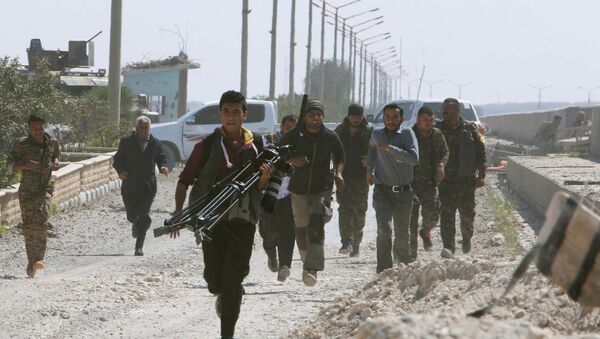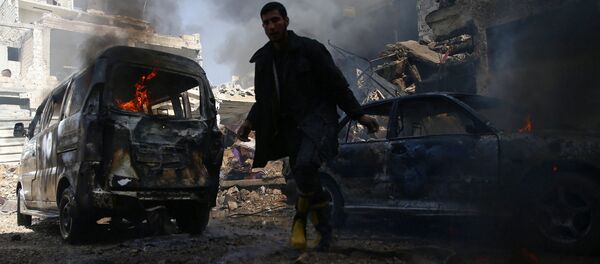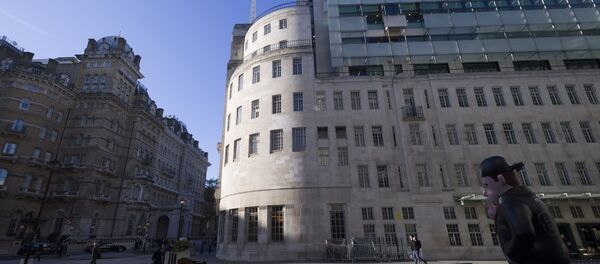Sputnik has discussed the development with Piers Robinson, co-director of the Organisation for Propaganda Studies and professor at the University of Sheffield.
Sputnik: What is your reaction to Mr Dalati's tweets?
Piers Robinson: It's obviously very interesting that somebody in his position is now declaring that it's his opinion that there was some element of manipulation or fabrication occurring in the events surrounding Douma. In some ways, of course, as you see in the recent Intercept article by [James] Harkin, the message of his idea is that there was an attack of some kind and Riam Dalati is saying that there was an attack.
That it was something that was carried out by opposition groups, Jaish al-Islam, in order to try to enable a military intervention, which obviously did occur six or seven days later with the bombing against Damascus. All of that is on the table now, undoubtedly.
And in some ways what Riam is saying does confirm what myself and many other academics, independent researchers and journalists have been saying for some time that there are serious questions about the official claims being brought forward by Western governments about what happened in Douma.
READ MORE: BBC Says Its Producer Expressed 'Personal Opinions' on Douma Incident
Sputnik: Moscow is now waiting for an official response from BBC to this tweet. What're your thoughts? Will the BBC respond and what we can expect from them in the way of some kind of response based on, perhaps, past incidents?
Piers Robinson: I'm really not quite sure if I can guess how the BBC might respond. I think we need to wait and see what more comes out. I mean, it's not very clear if Riam Dalati is referring to an article he has coming out, if that's an article which is going to go to the BBC or independently, we just don't know.
I guess most media organisations in general when they've got it wrong in the past tend to be fairly mealy-mouthed in their ability to either correct the record or to apologise for what has happened. We saw that in the case of the 2003 Iraq War, with some very limited apologies about their failure to scrutinise Western governments over WMD claims in Iraq.
So, I would suspect nothing more than a very cautious response from the BBC and they will probably want to wait and see what more Riam Dalati comes out and says over the coming days and weeks.
READ MORE: BBC Censors SNP Ian Blackford's Brexit Speech, Scots Vent Anger on Twitter
Sputnik: It's interesting that there aren't really [any] mainstream media reports about this at all. Do you think it's just too early, or do you think there are some other reasons for that nobody has really picked up on this?
Piers Robinson: I think the reasons are well-known. We know that when it comes to, especially foreign policy, war and conflict, media in Western democracies, as is the case in pretty much every other country in the world, tend to toe the line of what governments are doing and saying. This is well established across the critical political communication literature; it's for a whole number of reasons that this occurs.
You see a real timidity and lack of confidence amongst journalists and editors to really ask difficult questions of their governments when their countries are involved in some kind of war.
Views and opinions, expressed in the article are those of Piers Robinson and do not necessarily reflect those of Sputnik.





